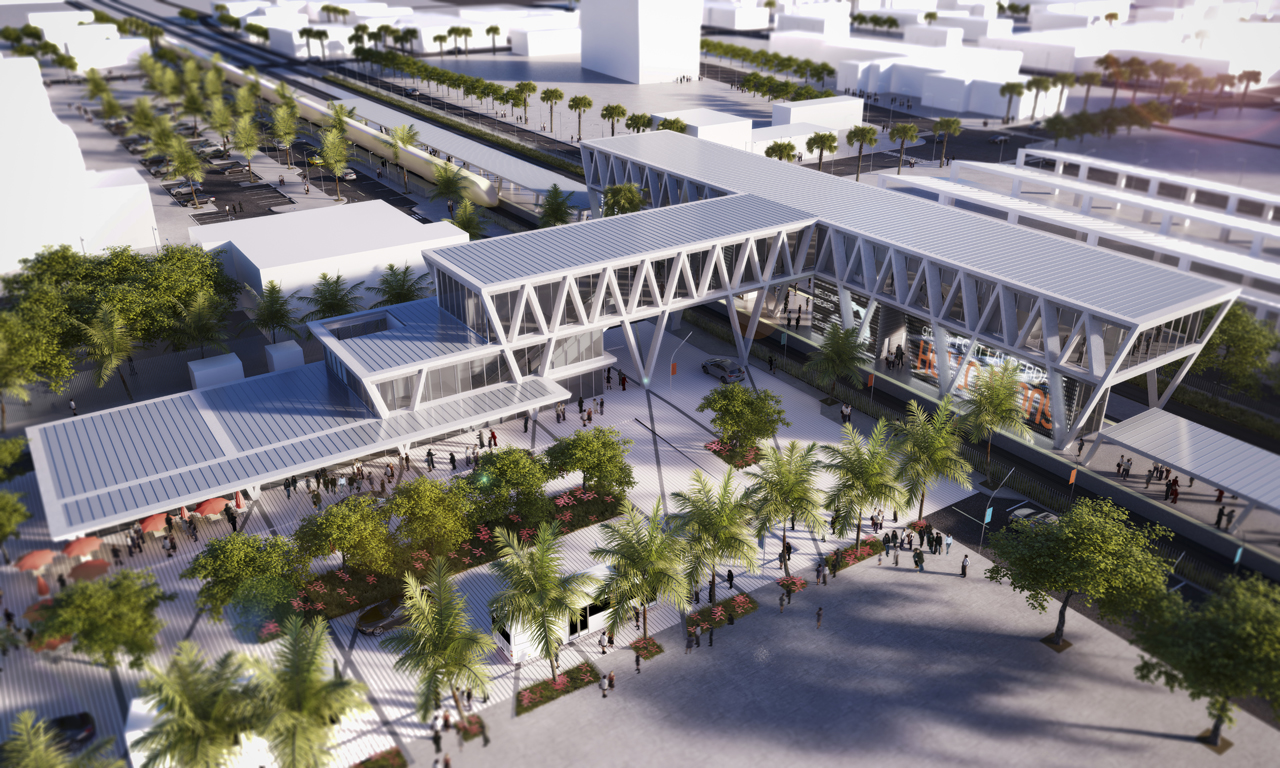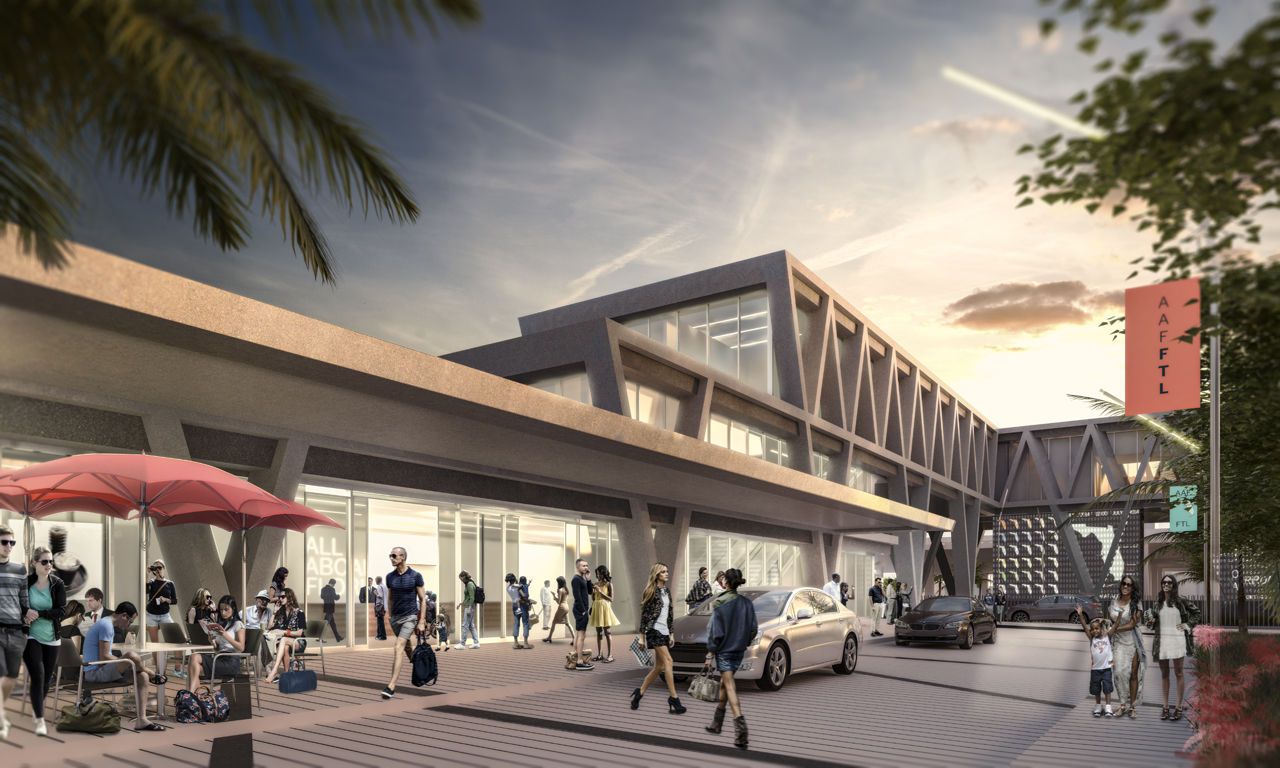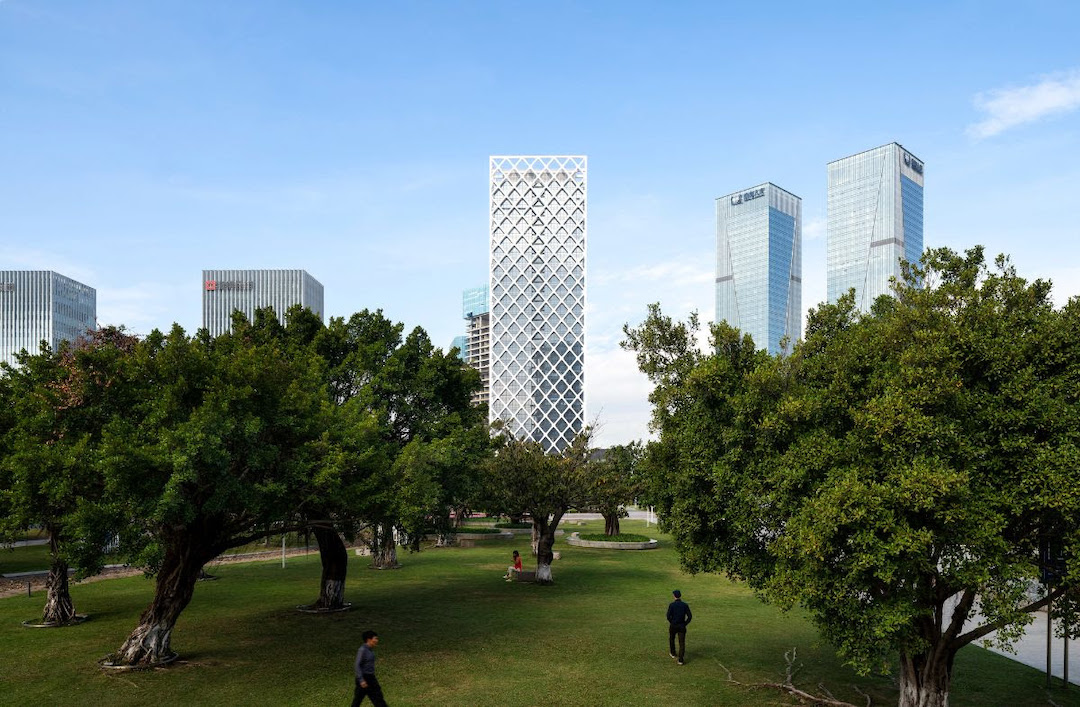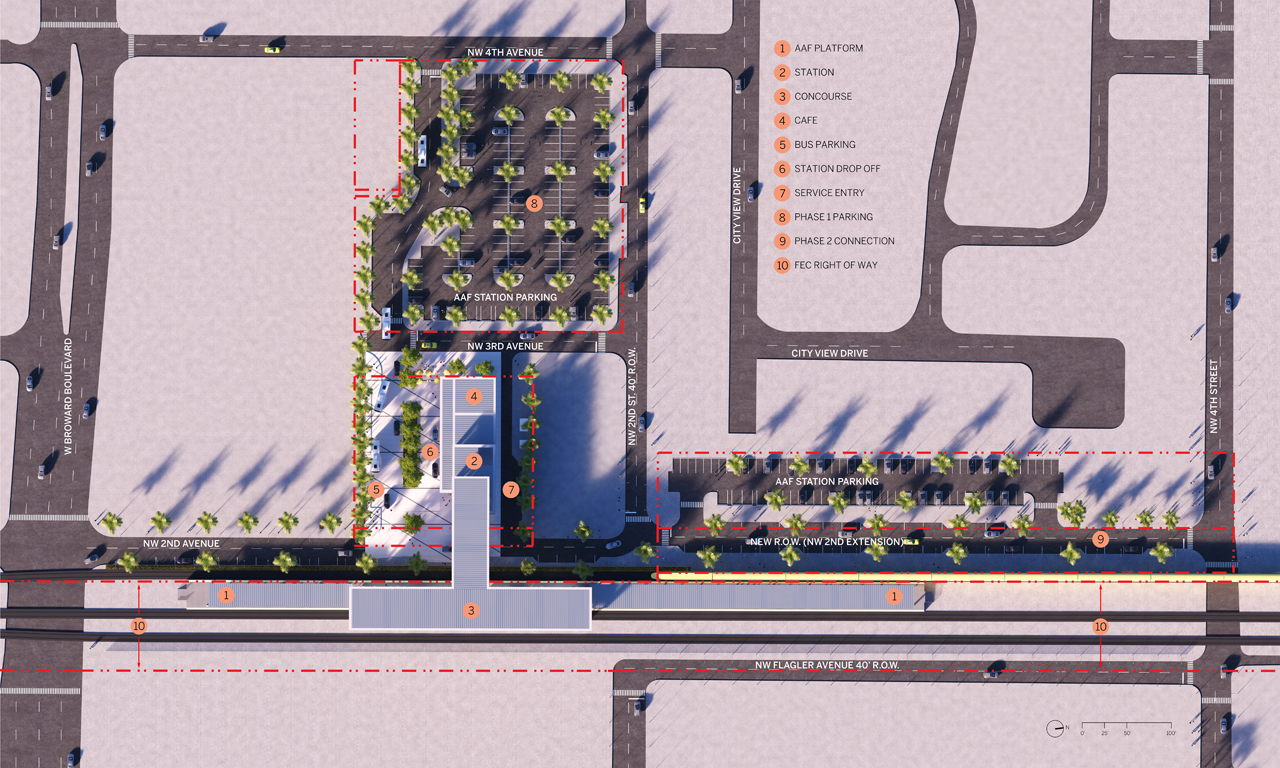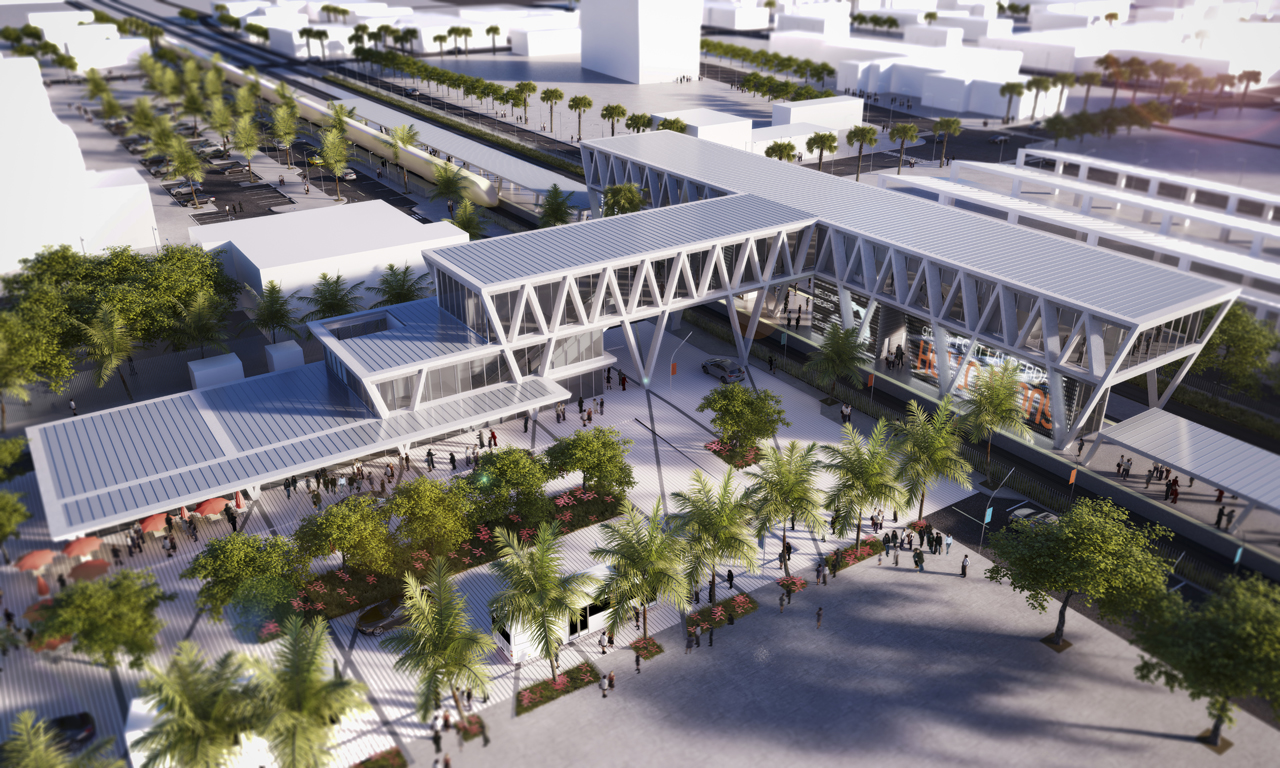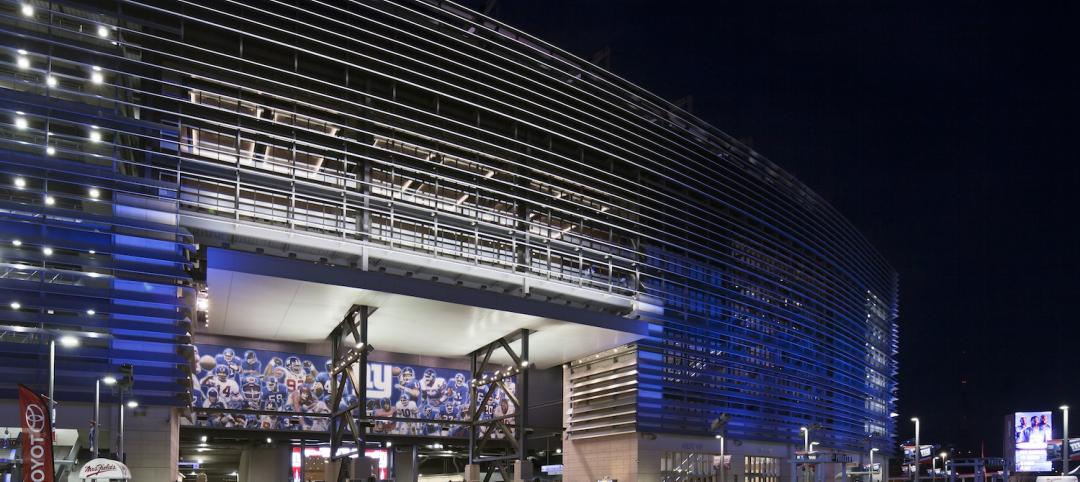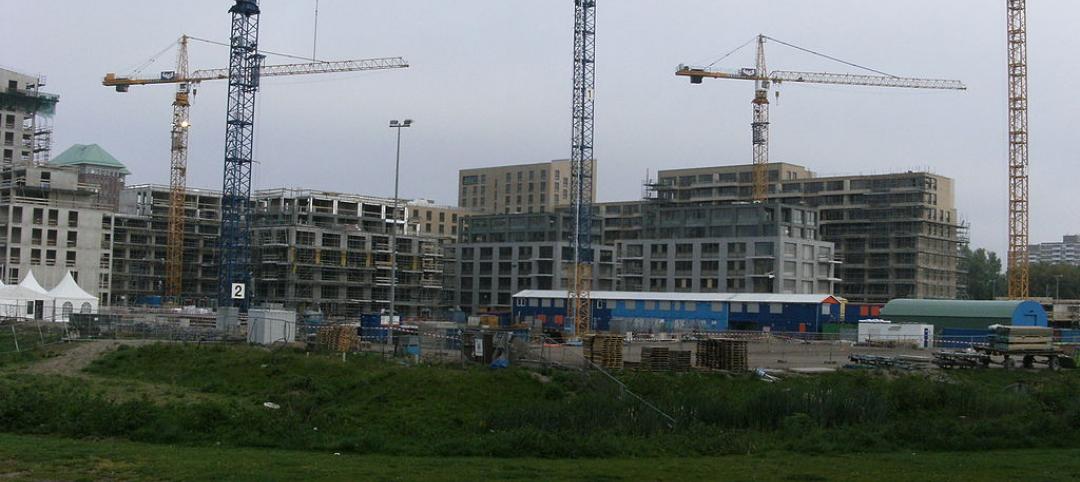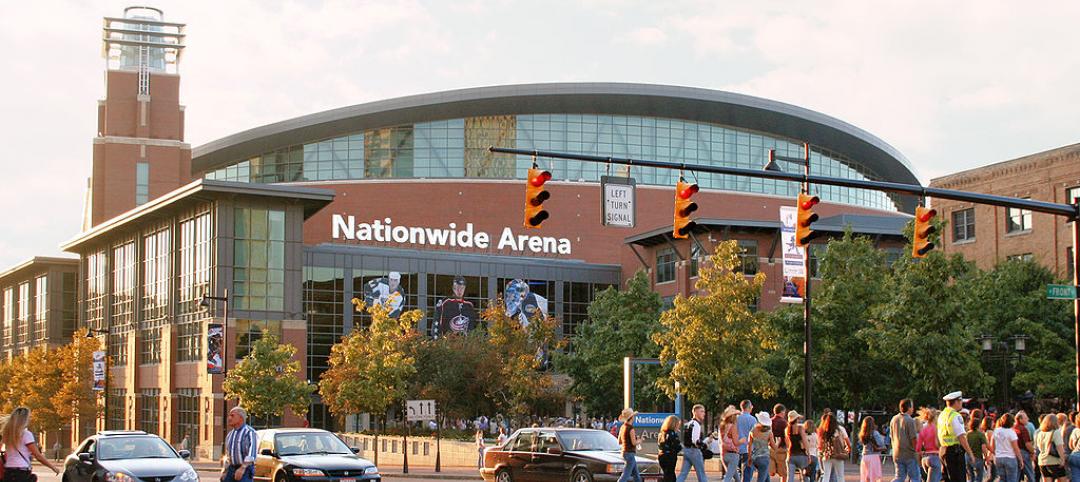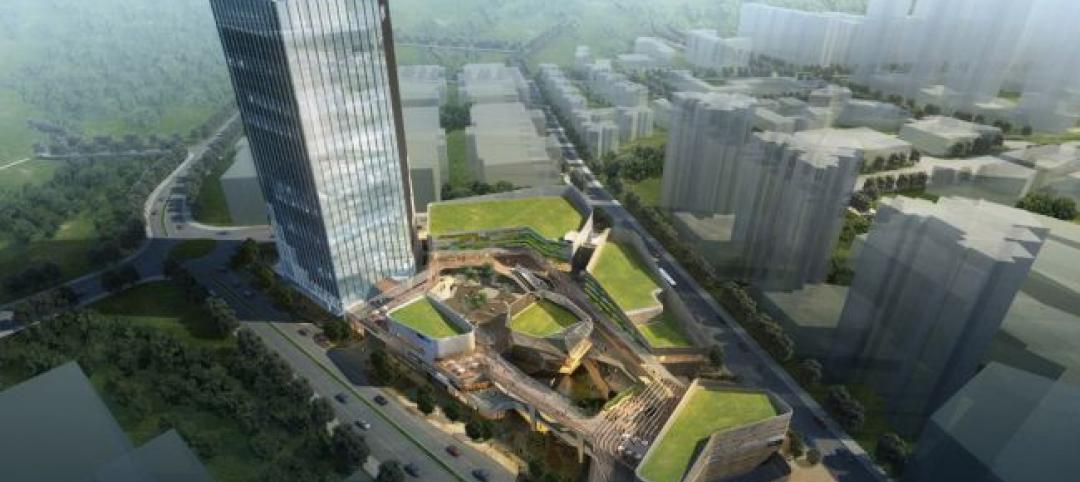An estimated three million car trips will be eliminated from the Southeastern United States each year—one of North America's region busiest with visitors, thanks to sunny weather and theme parks. At least, that's the plan for All Aboard Florida, the country's only privately owned, operated, and financed railway project.
The 235-mile rail network will connect South Florida to Orlando by utilizing the existing Florida East Coast corridor infrastructure. Global leading architectural firm Skidmore, Owings & Merrill (SOM) was invited on board as architect and planner for the Fort Lauderdale station.
The design, unveiled yesterday, is lightweight and luminous, which SOM Design Partner Roger Duffy says "responds to its setting and creates a striking infrastructural icon for the city."
“Fort Lauderdale is a dynamic city whose leadership understands the importance of creating new opportunities and solutions that keep up with the needs and demands of our increasingly mobile world,” says Michael Reininger, President and Chief Development Officer of All Aboard Florida. “As with our other planned stations in South Florida, All Aboard Florida will not only set a new standard in passenger rail, but will revitalize Fort Lauderdale’s downtown core fueling job and business growth, reducing road congestion, increasing tourism, delivering state and local tax revenues, and contributing long-term environmental benefits.”
The 27,500-sf station will be situated in northern downtown Fort lauderdale on 4.8 acres adjacent to existing Florida East Coast Railway tracks. The building will rise above surrounding buildings, serving as a powerful urban focal point.
A press release from SOM describes how a day in the station would be like:
The plan for the station itself is open and intuitive. Arriving passengers will enter a glazed ticketing lobby at grade level, with dedicated vehicular drop-off and pedestrian links to the city. Travelers will then ascend up an escalator to a bridge over NW 2nd Street, and enter a departures lounge, elevated 30 feet above the station platform.
Additional banks of escalators will take waiting passengers down from the floating lounge, onto the shaded platform, and into their trains. The use of glass throughout this sequence of spaces provides a constant visual connection to the city as well as approaching trains. Viewed from a distance, the station’s stacked, dynamic form evokes a feeling of movement.
Related Stories
| Aug 20, 2014
WELL Building: The next step in green sports construction
The WELL Building Standard, a new protocol that focuses on human wellness within the built environment, is a particularly good fit for sports facilities, write Skanska's Tom Tingle and Beth Heider.
| Aug 20, 2014
Seattle's King Street Station thoughtfully restored [2014 Reconstruction Awards]
After years of neglect and botched renovations, King Street Station sparkles once again.
| Aug 20, 2014
Tour an office with no assigned workstations [slideshow]
The New York office of the Gerson Lehrman Group recently redesigned its office without personal desks or cubicles. The company gave each of its 250 employees a locker, a laptop, and told to work anywhere they wanted, according to Business Insider.
| Aug 20, 2014
Architecture Billings Index reaches highest mark since 2007
The American Institute of Architects reported the July ABI score was 55.8, up noticeably from a mark of 53.5 in June.
| Aug 19, 2014
Goettsch Partners unveils design for mega mixed-use development in Shenzhen [slideshow]
The overall design concept is of a complex of textured buildings that would differentiate from the surrounding blue-glass buildings of Shenzhen.
| Aug 19, 2014
HOK to acquire 360 Architecture
Expected to be finalized by the end of October, the acquisition of 360 Architecture will provide immediate benefits to both firms’ clients worldwide as HOK re-enters the sports and entertainment market.
| Aug 19, 2014
A designer's epiphany: 'Let's stop talking and make something'
Making things is important because it reveals gaps in thought, sheds light on the fundamental assumptions that can kill ideas, and forces us to push toward solutions that actually work, writes HDR's David Grandy.
| Aug 19, 2014
Construction boom lures new class of lenders in Nashville, says JLL
In the coming months, a gleaming S-shaped tower will join Nashville's burgeoning skyline. The new tower is just one example of a project financed not with conventional construction loans but with a unique blend of equity and debt.
| Aug 18, 2014
Perkins+Will expands planning practice with strategic focus on underserved U.S. communities
The broadened focus is resulting in comprehensive, long-term plans that will guide new growth in places like Buffalo, N.Y., Kingston, R.I., and Brooklyn, N.Y.
| Aug 18, 2014
SPARK’s newly unveiled mixed-use development references China's flowing hillscape
Architecture firm SPARK recently finished a design for a new development in Shenzhen. The 770,700 square-foot mixed-use structure's design mimics the hilly landscape of the site's locale.


